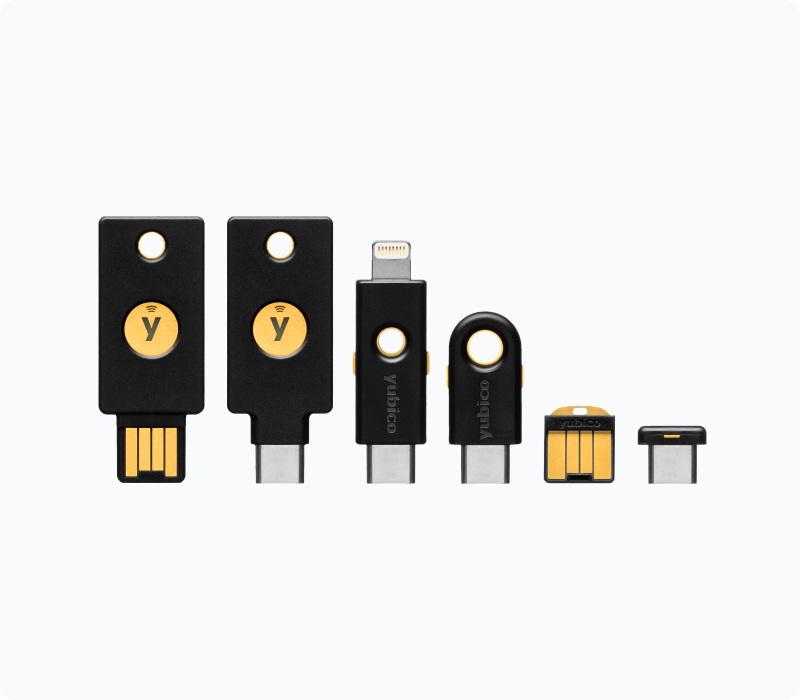How I became a cybersecurity wizard with a YubiKey ? You know those moments when you realize your digital life is hanging by a thread? For me, it was juggling dozens of remote VMs, a GPG key that felt more exposed than an open Wi-Fi network, and online accounts (Google, GitHub, and Cloudflare) that deserved better than “Password123”. That’s when I decided it was time to level up and get myself a YubiKey—the GOAT of hardware security keys.

Where did I get this magical talisman, you ask? From an India-based reseller, Icons, for ₹6,500. Sure, it’s not pocket change, but let’s be honest: is there a price too high for peace of mind and an ironclad defense against cyber villains? I think not.

Imagine a world where passwords are like Post-it notes stuck to a window: visible, stealable, and unreliable. Now, enter the YubiKey—a hardware security key that’s part gadget, part guardian angel, and entirely awesome. This tiny piece of tech can revolutionize how you think about online security, making hackers wish they’d chosen a different career.
Strap in, because we’re diving into the world of YubiKey, covering its advantages, use cases, technical underpinnings, and a sprinkling of humor to keep you awake.
Why Should You Care About Hardware Security?
Before we get into the nitty-gritty of YubiKey, let’s talk about why hardware security is the unsung hero of the cybersecurity world.
-
Passwords Are a Dumpster Fire
Let’s face it: we’re terrible at passwords. From “123456” to “password123” (genius!), humans have an uncanny ability to sabotage themselves. Even complex passwords aren’t enough when phishing attacks and brute force tools are in play. -
Two-Factor Authentication (2FA) Isn’t Foolproof
Sure, SMS-based 2FA is better than nothing, but it’s not hacker-proof. SIM-swapping attacks and phishing scams can render it useless. Hardware security keys, on the other hand, add a layer of defense that can’t be duplicated or intercepted remotely. -
Trust, But Verify (Your Hardware)
A YubiKey doesn’t just tell your systems, “This is me.” It cryptographically proves it. It’s like a bouncer checking not only your ID but also a holographic projection of your soul.
What is a YubiKey?
At its core, the YubiKey is a hardware authentication device that provides secure access to systems, accounts, and data. Developed by Yubico, it’s a USB-like device (sometimes with NFC support) that fits on your keychain but punches way above its weight class.
Features of YubiKey
- Multi-Factor Authentication (MFA): Adds a physical layer of security to your digital accounts.
- Passwordless Login: FIDO2/WebAuthn standards make it possible to log in without a password.
- Support for Multiple Protocols: From U2F and OTP to PGP, SSH, and more.
- Phishing Resistance: Stops attackers even if they have your credentials.
In short, YubiKey is like the Swiss Army knife of cybersecurity—compact, versatile, and incredibly reliable.
How Does YubiKey Work?
Understanding how YubiKey functions requires a quick dive into its primary operating modes:
-
One-Time Password (OTP)
When you tap the YubiKey, it generates a unique, time-sensitive password. Think of it as a disposable key that self-destructs after use. -
FIDO U2F (Universal 2nd Factor)
U2F employs cryptographic magic to authenticate your identity without sharing secrets. It’s like a secret handshake only your YubiKey knows. -
FIDO2/WebAuthn
The latest and greatest in passwordless authentication. With FIDO2, your YubiKey can enable secure logins without requiring a password. -
PGP Encryption
Use the YubiKey to sign, encrypt, and decrypt data. It’s a digital seal of approval no one can fake. -
SSH Authentication
Forget traditional SSH keys. YubiKey can store your private key and authenticate securely without ever exposing the key itself.
Setting Up Your YubiKey
Let’s walk through setting up a YubiKey. Because what’s the point of owning a Ferrari if you don’t know how to drive it?
Step 1: Buy the Right YubiKey
YubiKeys come in different models:
- YubiKey 5 Series: Supports USB-A, USB-C, NFC, and everything you could need.
- Security Key Series: Budget-friendly but limited to FIDO protocols.
Step 2: Register Your YubiKey
Start by registering your YubiKey with your account. Most online services like Google, GitHub, and Dropbox support hardware keys.
- Go to the security settings of the service.
- Select “Add Security Key.”
- Plug in your YubiKey and tap when prompted.
Boom! You’re now protected by the unbreakable bond of hardware-backed authentication.
Step 3: Configure Your System
On Linux or macOS, you may need to install some tools:
# Install YubiKey Manager
sudo apt install yubikey-manager
Using YubiKey with GPG
Now, let’s talk about GPG (GNU Privacy Guard). It’s a cryptographic tool used for signing, encrypting, and decrypting data. Pairing it with YubiKey ensures your private key is never exposed.
Step 1: Install GPG
Install the necessary software:
# Linux
sudo apt install gnupg
# macOS
brew install gnupg
Step 2: Generate GPG Keys
Create your GPG keys:
gpg --full-generate-key
- Choose RSA and RSA (4096 bits).
- Set an expiration date (or live dangerously and choose “never”).
Step 3: Move Keys to YubiKey
Export your private keys to the YubiKey:
gpg --edit-key <YOUR-KEY-ID>
In the interactive shell:
keytocard
save
Step 4: Use Your YubiKey
Encrypt or sign files with:
gpg --encrypt --recipient <YOUR-EMAIL> file.txt
Decrypt with:
gpg --decrypt file.txt.gpg
Using YubiKey for SSH Authentication
Your YubiKey can also act as an SSH key, perfect for logging into remote servers.
Step 1: Configure GPG as SSH Agent
Add this to your shell configuration:
export GPG_TTY=$(tty)
export SSH_AUTH_SOCK=$(gpgconf --list-dirs agent-ssh-socket)
Step 2: Export SSH Key
Export your public SSH key:
gpg --export-ssh-key <YOUR-KEY-ID>
Step 3: Add to Server
Copy the key to your server’s ~/.ssh/authorized_keys:
ssh-copy-id user@server
Phishing Resistance: How YubiKey Stops Scammers
Even the best of us can fall for phishing. But with YubiKey, phishing attacks hit a brick wall. Here’s why:
- YubiKey verifies the authenticity of the website or service before completing the handshake.
- Even if an attacker tries to proxy your login, the cryptographic signatures won’t match.
In short, YubiKey tells phishing attempts, “Not today, Satan.”
Finally: Is YubiKey Worth It?
Absolutely. For anyone serious about security, YubiKey is a no-brainer. It’s compact, robust, and incredibly effective at keeping your digital life safe. Whether you’re encrypting emails, logging into servers, or just trying to keep hackers at bay, this little device is your best bet. Buying a YubiKey is like buying a high-tech wizard’s staff. It’s tiny, it’s powerful, and you’ll feel like casting spells every time you tap it. But here’s the kicker—this key has no batteries, no fancy lights, no Bluetooth. It just… works. It’s the strong, silent type. In a world of flashy gadgets, the YubiKey is like that one friend who always shows up when you need them, wearing the same hoodie they’ve had since college, and saves the day. Now, every time I log into a secure service or SSH into a remote VM, I do it with a little extra swagger, knowing that my YubiKey is doing the heavy lifting. And the best part? Hackers hate it. So, get yourself a YubiKey and start tapping into better security—literally.
be vigilant, be secure … 🔑👮
